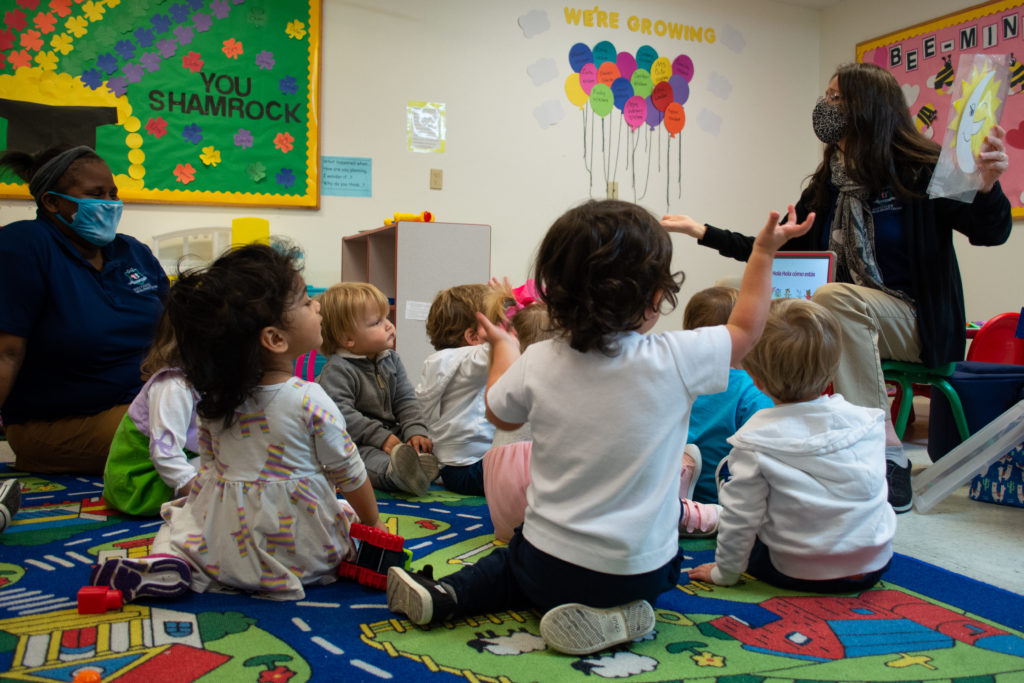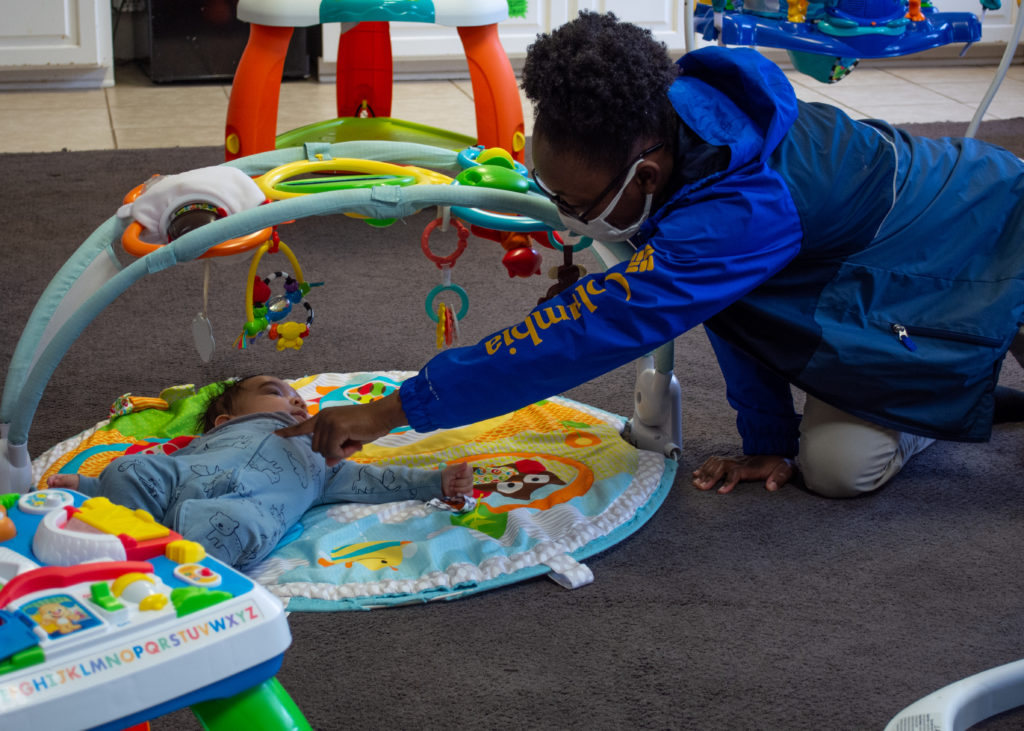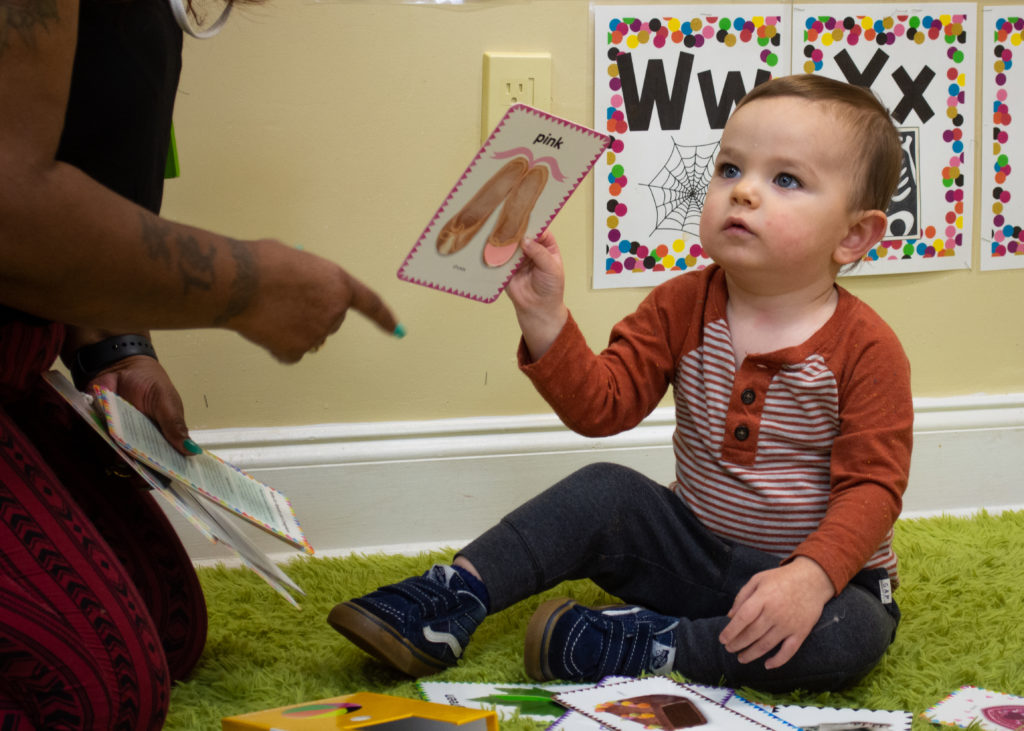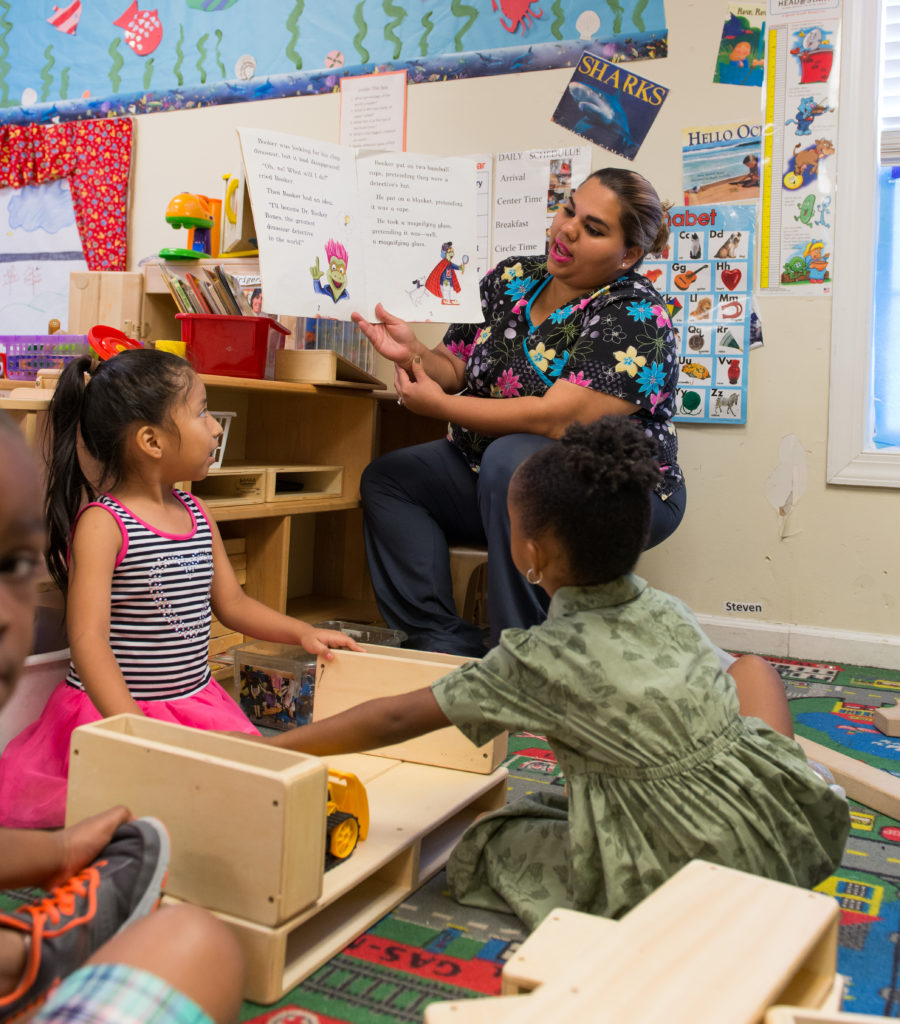State of Early Care and Education

At a Glance: Early Care and Education in Louisiana
173,000
total in-need children birth through age 3 in Louisiana
114,000
in-need children without access to a high-quality early care and education program in Louisiana
$762M
annual loss faced by Louisiana employers from employee absences and turnover due to child care issues
$1.3B
annual loss faced by Louisiana’s economy from employee absences and turnover due to child care issues
The Louisiana Policy Institute for Children is a nonpartisan, independent source of data, research, and pertinent information for policymakers, stakeholders, and the public at large around issues related to children ages birth through four in Louisiana.
Why Early Care and Education Costs So Much
- Child care providers, like many small businesses, operate on narrow gross margins and rely on private tuition. However, if they raise their tuition too much, they risk pricing families out of their center.
- Many quality-rated child care centers struggle to break even or operate at a loss.
- Child care costs almost as much as public college tuition in Louisiana,v with infant care in a center costing over $8,700 per year on average, according to Child Care Aware of America.
- Cost models show that centers rarely charge families the actual cost for their younger children, using tuition for 3- and 4-year-olds to subsidize the infants through 2-year-olds.
- In order to provide high-quality care, center directors must hire and pay enough teachers to ensure low teacher-to-child ratios, the number of adults based on the number of children. The teacher-to-child ratios in child care settings are required to be much lower compared to K-12 settings.
- Low teacher-to-child ratios are linked to children’s increased cognitive development, decreased behavioral problems, increased verbal development, and increased social competence.
- To provide quality programming, centers operate with teacher-to-child ratios below minimum state licensure requirements.
- Infant care is expensive because the teacher-to-child ratios are very low and costs at least $3,600 more than care for 3- and 4-year-olds.
- To meet certain pre-kindergarten requirements, centers employ teachers with bachelor’s degrees to lead classrooms for 4-year-olds and pay higher wages to compete with elementary schools for talent.
- The child care sector does not receive a significant amount of public funding to help them offset the costs of providing high-quality care and provide more families with access to child care regardless of their income.
- Head Start and Early Head Start programs serve only 6.6% of eligible children below age 3 and 46% of eligible 3- and 4-year-olds in Louisiana.
- Louisiana spends less than 1% of its state budget on early care and education.

Sources
- U.S. Department of the Treasury
- Louisiana Policy Institute for Children 2020 Cost modeling
- Child Care Aware
- Sage Publishing
- Louisiana Policy Institute for Children, 2018 Cost modeling
- Louisiana Early Childhood Care and Education Commission
- Louisiana Policy Institute for Children Head Start and Early Head Start fact sheet
- The Value of High-Quality Early Care and Education one-pager
Early Care and Education Workforce
- Early care and education providers are teaching professionals who use age-appropriate learning materials and curriculum in their classrooms, support positive interpersonal interactions, and foster a safe and secure learning environment for young children.
- However, the early care and education workforce is not well-compensated across the nation and particularly in the state of Louisiana.
- Wages for child care workers in Louisiana average $9.77 per hour, lower than the national average ($12.27) and the Southern states average ($10.97).
- Many child care centers simply cannot afford to raise the wages of their staff because they are already operating on razor-thin margins.
- Child care workers tend to turn over quickly and leave the profession early, which negatively impacts the quality of care available to young children.
- This causes Louisiana child care businesses to struggle to find and retain talent.
- The child care sector does not receive a significant amount of public funding to help offset the costs of providing high-quality care such as increasing wages for the child care teachers.
- High levels of teacher turnover has negative impacts for kindergarten readiness as it impacts the children in the classroom, and negatively affects the benefits of statewide quality improvement efforts aimed at developing teachers’ skills, knowledge, and abilities.
- Most child care teachers in Louisiana do not receive benefits and earn a median hourly wage of $9.13, just slightly higher than minimum wage.
- Child care teachers earn less than half of what their school-based counterparts earn, and less than the federal poverty level for a family of three in 2020
- About 35% of teachers in early childhood classrooms leave their sites each year (with 44% percent leaving child care centers).
- Pay disparity also exists between early care and education teachers in Louisiana who work at Head Start and school-based pre-kindergarten programs compared to those who do not. The average salary for Head Start and pre-K teachers in Louisiana is approximately $34,000 and $40,000, respectively, compared to approximately $20,000 for those in child care
- Data from a 2018 Louisiana employment survey, lead teachers in child care earn an average yearly income of $19,785 (compared to the national average early childhood care and education teacher salary of $25,510) which is significantly higher than the average yearly income for lead teachers in Louisiana.

Sources:
- Center for Law and Social Policy
- Louisiana Policy Institute for Children, Child Care the Economy in Louisiana
- Center for the Study of Child Care Employment
- The Louisiana Policy Institute for Children The Paradox Facing Working Mothers in Louisiana
- Louisiana Early Childhood Care and Education Commission
- Study of Early Education Louisiana
- Professional Wages for Professional Educators: Recommendations for Improving Early Childhood Workforce Compensation in Louisiana
- Senate Resolution 29
Early Care and Education Access and Enrollment
4-Year-Olds
- Over 80% of 4-year-olds in Louisiana attend free public pre-K in schools or Head Start programs.
- 90% of 4-year-olds are in a program rated as a quality program.
Birth to 3-Year-Olds
- For children under age 4, quality early care and education is severely underfunded and out of reach for most low-income, working families.
- Less than 16% of low-income children under age 4 have access to any publicly funded program, including only 32% of 3-year-olds, 14% of 2-year-olds, 12% of 1-year-olds, and 6% of infants.
Louisiana’s Available Early Care and Education Programs
Programs for 4-Year-Olds
Louisiana’s quality early care and education programs for 4-year-olds include (1) the Cecil J. Picard LA 4 Early Childhood Program, (2) 8(g) Student Enhancement Block Grant Program, (3) Nonpublic School Early Childhood Development Program, (4) federally funded Head Start 4-year-old program, and (5) Title I funding used by school districts for pre-K.
- Cecil J. Picard LA 4 Early Childhood Program
- The Cecil J. Picard LA 4 Early Childhood Program (LA4) is the primary preschool program in Louisiana, serving more than 16,000 children. It provides full-day pre-K programming in public schools to 4-year-olds from disadvantaged families.
- 8(g) Student Enhancement Block Grant Program
- The 8(g) Student Enhancement Block Grant Program supports roughly 3,000 at-risk preschool students to attend pre-K programs each year through the Louisiana Education Quality Support Fund, administered by the Board of Elementary and Secondary Education.
- Nonpublic School Early Childhood Development Program
- The Nonpublic Schools Early Childhood Development (NSECD) Program provides pre-K programming to more than 1,300 4-year-olds from low-income families. Children in the NSECD program receive full-day pre-K in state-approved private preschools and child care centers.
- Head Start 4-year-old Program
- Head Start is a federal program that promotes the school readiness of children ages birth to 5 from low-income families through comprehensive preschool programming.
- Title I funding used by school districts for pre-K
- Louisiana school districts can use Title I funding to provide high-quality pre-K to 4-year-olds in public schools, typically adopting the same standards as LA4.
Programs for Birth to 3-Year-Olds
Louisiana’s publicly funded early care and education programs for children under age 4 are (1) Head Start (HS) programs, (2) Early Head Start (EHS) programs, and (3) the Child Care Assistance Program.
- Head Start and Early Head Start
- Head Start (HS) programs serve 3- and 4-year-olds and Early Head Start (EHS) programs serve infants through 2-year-olds. Both are entirely federally funded through grants to local public and private entities.
- The total number of HS and EHS slots available in Louisiana serves only a small percentage of the eligible population.
- Child Care Assistance Program (CCAP)
- The Child Care Assistance Program (CCAP) is the only state-administered early care and education program that serves children under age 4
- To qualify for CCAP, parents must be working or searching for work, in school or in job training, and low-income.

Sources:
History of Early Care and Education System Reforms
- In 2012, the Louisiana Legislature passed the Early Childhood Education Act (Act 3), which mandated sweeping reforms to early care and education and moved system governance from the Louisiana Department of Children and Family Services (LDCFS) to the Louisiana Department of Education (LDOE).
- Act 3 sought to improve school readiness by bringing all early childhood sites receiving public dollars into a single system with consistent quality standards.
- Later legislation through Act 717 passed in 2014 mandated a common enrollment system for all publicly funded early care and education programs
- The Louisiana Legislature passed Act 868 in 2014 to create a standing Early Childhood Care and Education Advisory Council of parents, providers, advocates and community leaders to make recommendations to the Board of Elementary and Secondary Education (BESE) to guide Act 3 implementation.
- This Advisory Council supports the ongoing governance of the state’s early care and education system and recommends, reviews, and approves administrative policy changes to improve it.
- In 2018, the Louisiana Legislature passed Act 639, which created the bipartisan Early Childhood Care and Education Commission, which is made up of 38 representatives of government, ECE providers, advocates, parents, and community. The Commission is charged with creating recommendations to increase access to quality early care and education, identifying the amount and sources of funding needed to accomplish them, and reporting findings back to the Louisiana Legislature.
- Act 639 also authorized local governance pilots, known as Ready Start Networks, to help community networks drive continued improvement in early care and education access, quality, and equity.
- The Louisiana Department of Education created local early childhood community networks in each parish to ensure locally accessible and responsive early care and education systems that address the needs of diverse families.
- Each network encompasses all publicly-funded early care and education programs and has a lead agency – a school district or nonprofit – that coordinates classroom observations, enrollment to match families with programs that meet their needs, family engagement, and planning among ECE leaders and families.
Early Childhood Care & Education Commission Reports
The Louisiana legislature established the state-level Early Childhood Care and Education Commission (ECCE Commission) through Louisiana Act 639 (2018) which calls on the Commission to develop a vision and plan to address affordable access to high-quality early childhood education for Louisiana’s children, birth through age 4 and formalize the local governance structures (community networks) to support increased innovation in local contexts, ultimately leading to improved quality and access to funding.
The following reports are from the ECCE Commission:
- Forging a Bright Economic Future: LA B to 3 (February 2022)
- Funding Our Future: LA B to 3 The Economic Imperative of Early Childhood Care and Education in Louisiana (March 2021)
- Funding Our Future: LA B to 3 Commission Report Addendum (January 2020)
- Funding Our Future: LA B to 3 (January 2019)
A Modern History of Early Care and Education in Louisiana
In the late 20th century, scientists realized that the vast majority of brain development takes place during the first three years of a child’s life. At the same time, increasingly, child care was becoming one of the most common contexts in which child development unfolds.
In the early 2000s, Louisiana served only 27% of 4-year-olds in pre-kindergarten (pre-K), and the state ranked last in the country for access to child care for 3-year-olds. The state’s early care and education (ECE) regulatory structures met only 4 out of 10 national benchmarks with no required teacher professional development or minimum staff-child ratios. Yet Louisiana’s ECE advocates understood that affordable, high-quality ECE opportunities could be a game- changer for both children and their families, as well as for the state as a whole, and they began to organize themselves to support families with young children.
The story of ECE in Louisiana is a story of laying the groundwork to create fertile conditions for advancing ECE and seizing upon opportunities as they arose. The story of ECE in Louisiana is a story of tireless people coming together, from inside and outside government, from both sides of the political aisle, and from business and nonprofit sectors across the state, to make progress inch by inch, never losing focus on the importance of early childhood experiences.
A Moden History of Early Care and Education in Louisiana, Full Report (2023)
A Moden History of Early Care and Education in Louisiana, Executive Summary (2023)

